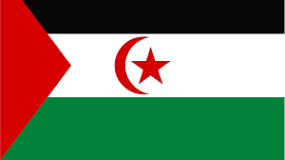
Western Sahara Country Report
The unresolved situation in the Western Sahara remains a long-term threat to regional stability and the potential threat of armed conflict. The socio-economic problems and civil unrest caused by the tension between the people of the Sahara and the Moroccans are real. The crime rate is generally lower than in Morocco, but petty crimes such as pickpocketing, pickpocketing, and vehicle theft still pose risks to tourists, and foreigners are targets of robbery and assault due to their relative wealth. The region’s political situation is unresolved and its borders are relatively porous, making it vulnerable to attacks by terrorist and criminal organizations operating in the Sahel.
Transportation options are limited in the Western Sahara, and individual travel is limited in the conflict zone. The most common health threat for travelers to the Western Sahara is food and waterborne diseases. Basic medical care is available but usually does not meet international standards and is of very limited availability, especially in remote areas controlled by the Polisario Front. Hot, dry winds and desert conditions not only make travel difficult but can also be a health hazard. Due to the unresolved situation in the Western Sahara and the continued militarization of the region separating Morocco from the Polisario-controlled areas, high levels of unexploded ordnance (UXO) and mine contamination remain in the region, particularly along the sediments.
Last updated: December 22, 2022
Security
Western Sahara is still divided between areas controlled by Morocco and the Polisario Front, and the 1991 ceasefire is monitored by the United Nations Peacekeeping Force for the Referendum in Western Sahara (MINURSO). In recent years, tensions have risen in the region with abusive rhetoric from both sides of the conflict. However, the ceasefire remains in place and there is little risk of renewed fighting. The level of criminal activity in the area is generally considered to be slightly lower than in many urban areas of Morocco, but statistics are not readily available and petty theft remains a problem. There is a credible threat from terrorist-related activities in the Western Sahara, and several groups are reportedly considering attacks in the region. However, there have been no recent attacks in the Western Sahara.
Last updated: December 22, 2022
Infrastructure
Land travel is dangerous due to poor road infrastructure and harsh weather conditions. Although most roads have been cleared of unexploded ordnance, there is still the risk of hitting mines when driving on off-road tracks or small tracks near berms. The disputed status of the Western Sahara has hampered the development of modern electricity and communications infrastructure, and power supplies are generally unreliable in many areas. Entrances and exits may also be closed without notice.
Last updated: May 17, 2022
Environment
The Western Sahara is one of the most mine- and unexploded ordnance (UXO)-contaminated areas in the world, especially around the Berm that separates Morocco from the Polisario-controlled areas. Hot, dry, usually dusty, and sandy winds in winter and spring can cause breathing problems and hazards for drivers.
Last updated: March 17, 2022
Health and Medical
Foodborne and waterborne diseases are the most common health threats for travelers to Western Sahara, as both the level of infrastructure development and health standards are below international standards. There are medical facilities in Layun, Dakhla, and Asmara, but services are limited, and medical evacuation may be required for more advanced or long-term treatment. Although common prescription drugs are available in major urban centers in the region, some drugs may be in short supply.
Last updated: September 6, 2023
Political
The status of Western Sahara is disputed between Morocco and the separatist group Polisario, which claims the Sahrawi territory. The territory is still divided between areas controlled by Morocco and the Polisario, and the 1991 ceasefire is monitored by the United Nations Peacekeeping Force for the Referendum in Western Sahara (MINURSO). However, the main urban centers of the territory and the most important political framework are controlled by the Moroccan government.
Geopolitical tensions between Morocco and neighboring countries around the disputed region of Western Sahara remain high. In August 2022, Tunisia hosted the head of the Polisario Front, the main independence movement in Western Sahara, during the Tokyo International Conference on African Development (TICAD). The move sparked a diplomatic crisis between Morocco and Tunisia and reignited decades-old tensions with Algeria. Although Tunisia remains neutral in the conflict, the Western Sahara remains a crossroads between Rabat and Algiers, with Algeria allowing the Polisario Front to operate in Algiers, where it maintains training bases.
Last updated: June 12, 2023















